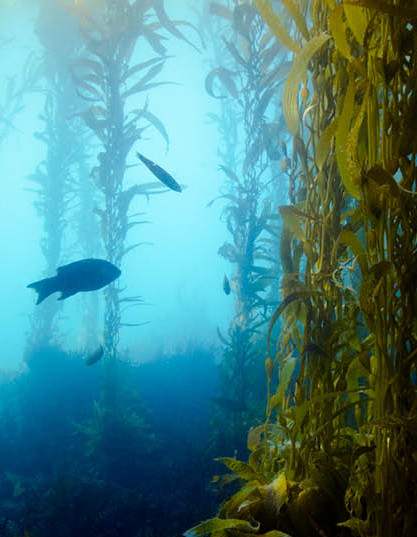Alarm over Tasman warming
 Parts of the ocean off the Tasman Peninsula are warming at a faster rate than the global average, pushing ecosystems to the brink.
Parts of the ocean off the Tasman Peninsula are warming at a faster rate than the global average, pushing ecosystems to the brink.
Water off eastern Tasmania are among several ocean “hotspots” that have an above-average rate of warming.
Scientists from the CSIRO and the Institute for Marine and Antarctic Studies (IMAS), say the area is warming at a rate of 2.3C per century — equating to roughly four times the global average.
The situation has destroyed 95 per cent of giant kelp forests, smashed fisheries, brought disease to oyster stocks and invited new, invasive species.
Canadian marine biologist Kira Krumhansl has studied the decline of kelp forest around the world, and describes Tasmania’s losses as “shocking” and “tremendously alarming”.
“Tasmania is certainly on the very high end in terms of the magnitude of losses that we've seen over the last several decades, it's quite concerning,” she told the ABC.
“What's happening in Tasmania is a demonstration of what the future of kelp forests might be in other regions that may not have warmed quite as fast or to the extent that Tasmania has.”
Gretta Pecl, a professor and director of the Centre for Marine Sociology at the University of Tasmania, says that although there are other warming ‘hotspots’ around the world, “Tasmania gets hit with a double whammy”.
“It gets the underlying warming that most of the rest of the ocean experiences, as well as a change in current system.”
Reef ecologist with the Institute for Marine and Antarctic Studies, Scott Ling, says it is a concerning situation.
“This is not just a little pulse that's come and gone,” Dr Ling says.
“This has been a large directional change in the marine environment that's among the strongest signals of warming for reef systems anywhere in the world.
“People the world over are looking to Tasmania to understand the changes that may already be happening in their backyard.
“We've gone from about 3 per cent of the east coast as barrens owing to the long-spined sea urchin to more than 15 per cent in that period, we've gone from just a handful of urchins to now an estimated 20 million since 1978.
“It is a challenging time but a key message out of this is an ounce of prevention is worth a tone of cure.
“Very small changes in temperature can have a massive impact on an ecosystem and as the temperature's been creeping up it's now crossed this critical threshold for the biology.”








 Print
Print